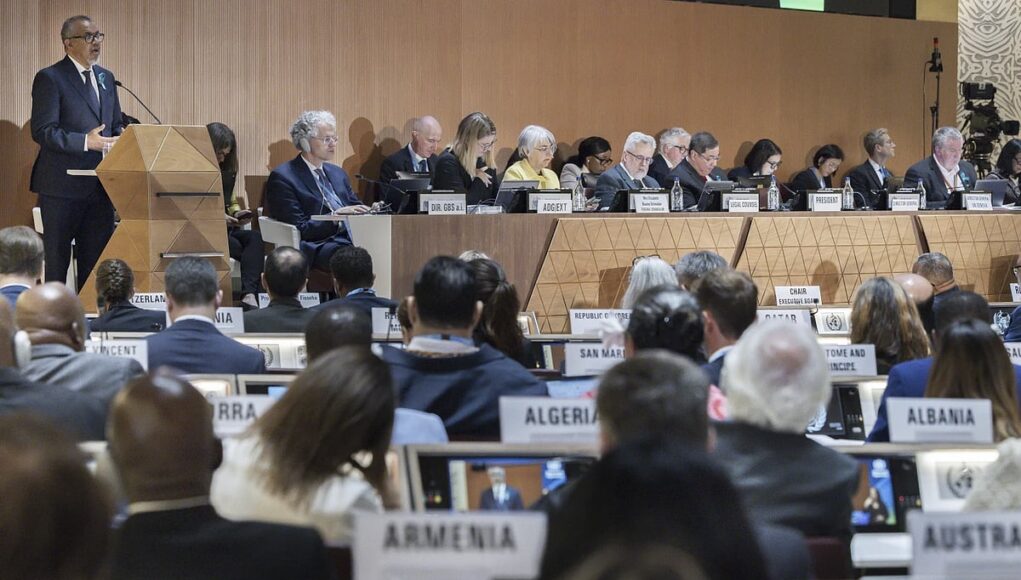Source : NEW INDIAN EXPRESS NEWS
Among other things, the treaty would guarantee that countries that share critical samples of viruses will receive any resulting tests, medicines and vaccines and give WHO up to 20% of such products to make sure poorer countries can have access to them.
“Every World Health Assembly is significant, but this year’s is especially so,” Tedros said. “This is truly a historic moment.”
The treaty’s effectiveness will face doubts when the US — which poured billions into speedy work by pharmaceutical companies to develop COVID-19 vaccines — is sitting out, and because countries face no penalties if they ignore it, a common issue in international law.
Kavanagh said passage of the treaty “could be a significant victory — evidence that the US government may no longer be indispensable in global health” and could offer an opportunity for developing nations in the “global South” over the longer term.
Management shake-up as critics blast WHO
Trump has long derided WHO, including back in his first term when he pulled the United States out over its alleged kowtowing to China and other alleged missteps in the Covid pandemic. President Joe Biden put the US back in.
On his first day back in office in January, Trump signed an executive order to pause future transfers of US government funds to the WHO, recall US government staff working with it, and announce a formal pullout by next January — under a one-year timetable required under US law.
Other opponents continue to lash out at WHO. CitizenGo, an activist group that supports right-to-life and religious liberty issues, protested Monday against the pandemic treaty outside the U.N. compound in Geneva where WHO’s meeting was taking place.
The rally included a balloon sculpture in the shape of the world and a banner inveighing against “globalist elites” and showing an image of Tedros and billionaire Microsoft co-founder Bill Gates, a major WHO supporter, shaking hands while surrounded by dollars.
SOURCE :- NEW INDIAN EXPRESS






